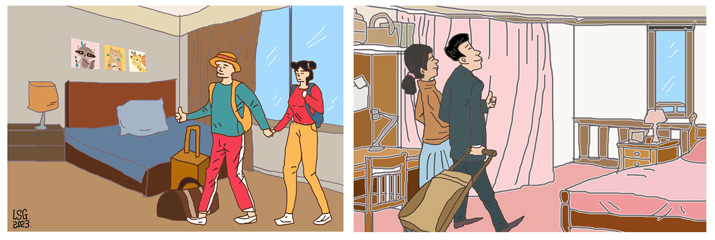
(CARTOON BY LI SHIGONG)
The five-day May Day holiday this year saw the rise of many trends, one of which is house swapping—the exchange of homes between two strangers who are traveling to each other’s cities. In the face of sky-high room prices at hotels, zero- cost home swaps are attracting Chinese young travelers in droves.
This type of homestay is not only free of charge, but also gives home swappers a chance to share tips on how to travel like a local, skip the tourist traps, and dis- cover hidden restaurants, biking routes, and more. What’s more, it can foster last- ing social connections that may evolve into friendships.
However, despite its rising popularity among adventure-seeking Gen Z, house swapping comes with many problems, even dangers. Possible risks include property damage, theft, and even kidnapping. Also, some swappers have labeled their supposedly free homes with rental and cleaning prices, thereby blurring the boundaries between home swaps and bed and breakfasts.
Therefore, vacationers should make sure they do research on their house swap partners beforehand. Meanwhile, occu- pancy agreements signed by both parties should be in place to minimize risks and guarantee a safe experience.
